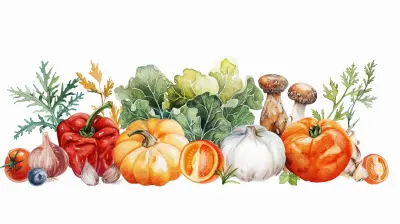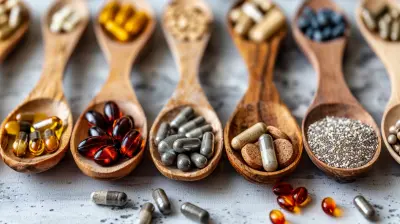The Importance of Fiber in Maintaining a Healthy Gut
18 November 2025
Fiber is often overlooked, but it plays a crucial role in keeping our digestive system running smoothly. If you've ever heard the phrase "you are what you eat," it's even more accurate when it comes to gut health. A fiber-rich diet supports digestion, prevents constipation, and nourishes the good bacteria in your gut, leading to overall better health.
But why is fiber so important? And how can you make sure you're getting enough of it in your daily diet? In this article, we'll dive deep into the benefits of fiber, how it impacts your gut, and how to incorporate more of it into your meals.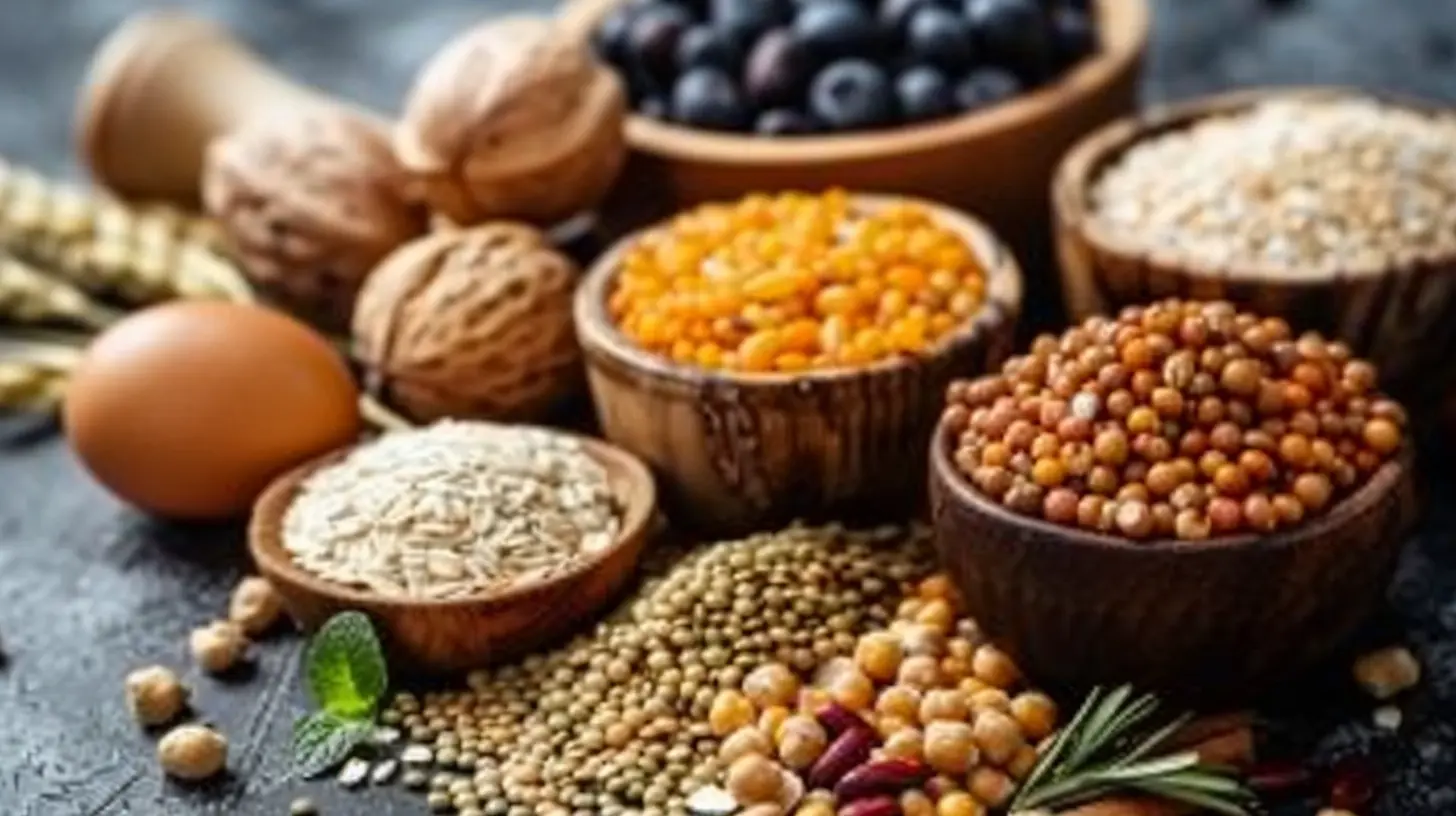
What is Fiber?
Fiber is a type of carbohydrate that your body can’t digest. Unlike other carbs that break down into sugar, fiber passes through your digestive system mostly intact. There are two types of fiber, each with its own benefits:- Soluble fiber: Dissolves in water to form a gel-like substance. It helps lower cholesterol, regulate blood sugar levels, and feed the good bacteria in your gut. Found in oats, beans, apples, and carrots.
- Insoluble fiber: Does not dissolve in water. It adds bulk to your stool, helping food pass easily through your digestive system. Found in whole grains, nuts, and vegetables like cauliflower and potatoes.
Both types of fiber are essential for maintaining gut health, so it's important to balance your intake of both.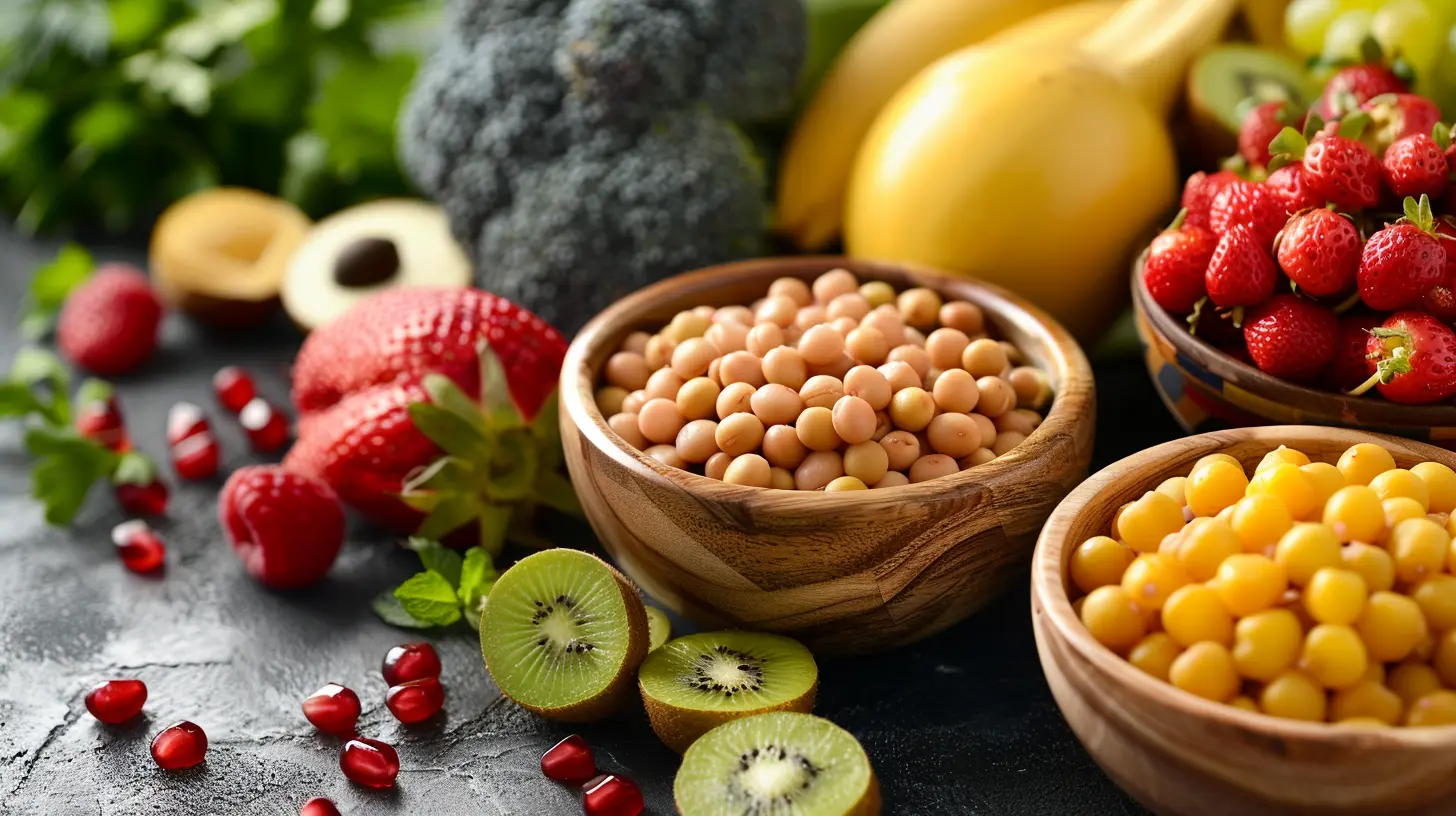
How Fiber Supports Gut Health
Your gut is home to trillions of bacteria, both good and bad. The goal is to create an environment where good bacteria thrive, while keeping the harmful ones in check. Fiber plays a huge role in making this happen.1. Feeds Your Gut Bacteria (Prebiotic Benefits)
Your gut microbiome is like a bustling city full of tiny residents—bacteria. These bacteria need food to survive and thrive, and fiber is their favorite meal. Specifically, soluble fiber acts as a prebiotic, which means it feeds the beneficial bacteria in your gut. When these bacteria ferment fiber, they produce short-chain fatty acids (SCFAs), like butyrate, which help reduce inflammation and support a strong gut lining.
2. Keeps Your Digestion Smooth
Nobody likes to talk about constipation, but it's a real struggle for many people. Insoluble fiber adds bulk to your stool and helps keep things moving through your digestive tract. If you've ever experienced bloating, irregularity, or discomfort after eating, a lack of fiber might be the culprit.
3. Reduces the Risk of Digestive Disorders
A fiber-rich diet has been linked to a reduced risk of common digestive issues like irritable bowel syndrome (IBS), diverticulosis, and even colon cancer. Fiber helps maintain a balanced, healthy gut, reducing inflammation and keeping harmful bacteria at bay.
4. Regulates Blood Sugar Levels
For those with diabetes or insulin resistance, fiber is a game-changer. Soluble fiber slows down the absorption of sugar, preventing spikes and crashes in blood sugar levels. This means fewer energy dips and cravings throughout the day.
5. Supports Weight Management
Ever notice how high-fiber foods keep you full longer? That’s because fiber slows digestion, helping you feel satisfied for a longer period. If you're looking to maintain or lose weight, fiber can be your best friend by reducing overeating and unnecessary snacking.
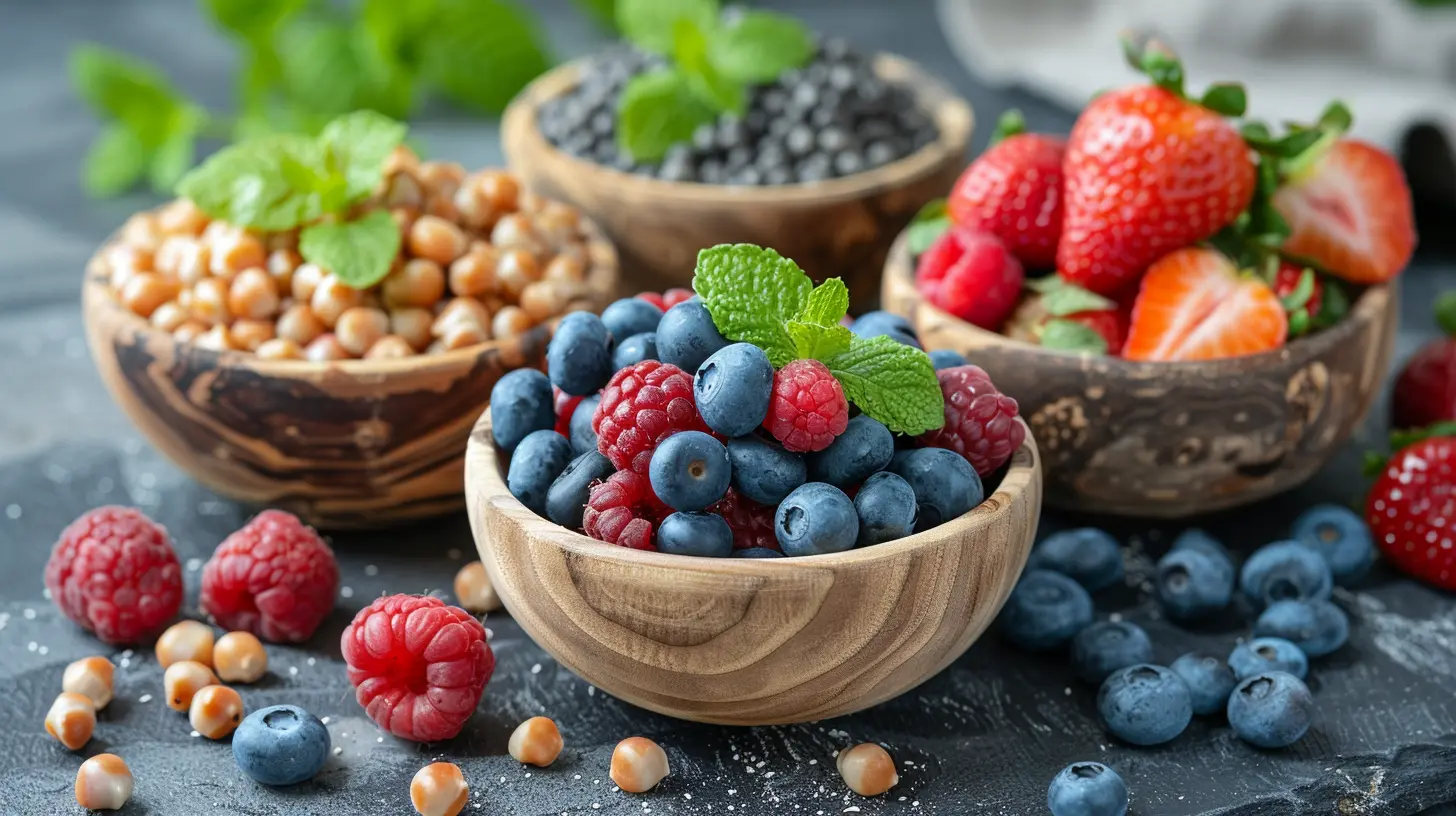
How Much Fiber Do You Need?
The recommended daily intake of fiber varies by age and gender:- Men (under 50): 38 grams per day
- Women (under 50): 25 grams per day
- Men (over 50): 30 grams per day
- Women (over 50): 21 grams per day
Most people, however, fall well short of these recommendations. If you're not getting enough fiber, don’t worry—you can easily increase your intake with some simple dietary changes.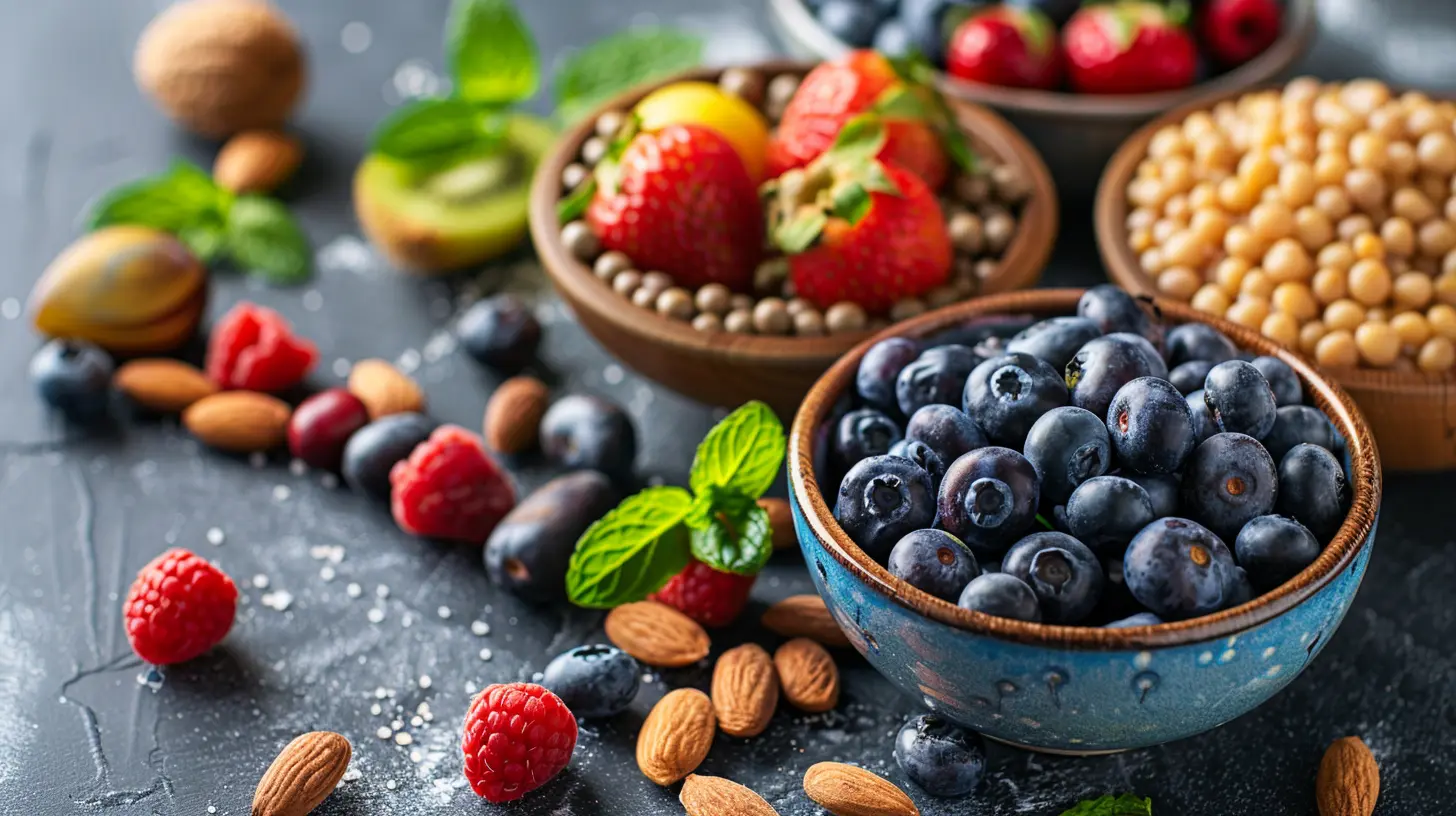
Best Sources of Fiber
Looking to get more fiber into your diet? Here are some all-star fiber-rich foods that can make a big difference:Fruits
- Apples (with skin)- Pears
- Berries (raspberries, blackberries)
- Oranges
- Bananas
Vegetables
- Broccoli- Carrots
- Brussels sprouts
- Kale
- Sweet potatoes
Whole Grains
- Oats- Brown rice
- Quinoa
- Whole wheat bread
- Barley
Legumes and Nuts
- Lentils- Black beans
- Chickpeas
- Almonds
- Chia seeds
If you’re not used to eating a lot of fiber, increase your intake gradually and drink plenty of water. Adding too much fiber too quickly can cause bloating and gas.
Easy Ways to Add More Fiber to Your Diet
Adding fiber to your diet doesn’t mean eating plain bran flakes every day. Here are some simple and delicious ways to get more fiber:1. Start Your Day with Oats
Oatmeal is packed with soluble fiber. Top it with berries and nuts for an extra fiber boost.
2. Swap White for Whole Grains
Choose whole grain bread, pasta, and rice instead of their white counterparts.
3. Snack Smart with Nuts and Seeds
Almonds, chia seeds, and pumpkin seeds are great snacks that add fiber and healthy fats.
4. Add More Beans to Your Meals
Toss chickpeas in salads, add lentils to soups, or enjoy a hearty bean chili.
5. Eat Fruits with the Skin On
Peeling fruits removes a good chunk of their fiber content.
6. Sneak Veggies into Every Meal
Add spinach to smoothies, throw extra veggies into stir-fries, or enjoy crudites with hummus.
7. Try a Fiber Supplement (if needed)
If you struggle to get enough fiber from food, supplements like psyllium husk can help. But food sources are always the best option.
Can You Eat Too Much Fiber?
Believe it or not, yes, you can overdo it. Too much fiber—especially if added suddenly—can cause bloating, gas, and even stomach cramps. If you experience digestive discomfort, cut back slightly and drink more water. Balance is key.Final Thoughts
Fiber is one of the most important nutrients for gut health, yet many people don’t get enough. By eating a variety of fiber-rich foods—fruits, vegetables, whole grains, and legumes—you can nourish your gut, improve digestion, and even lower your risk of chronic diseases.Remember, small changes can make a big impact. Whether it’s swapping white bread for whole wheat or adding an extra serving of veggies to your meal, your gut will thank you for it.
all images in this post were generated using AI tools
Category:
Healthy LifestyleAuthor:

Laura Hudson
Discussion
rate this article
1 comments
Thalwen Luna
Fiber plays a crucial role in gut health by promoting regular bowel movements, supporting beneficial bacteria, and reducing inflammation. Incorporating a variety of fiber-rich foods, such as fruits, vegetables, whole grains, and legumes, is essential for optimal digestive function and overall well-being.
November 27, 2025 at 5:29 AM

Laura Hudson
Thank you for highlighting the essential role of fiber in gut health! Its benefits for digestion and overall well-being are indeed vital.

